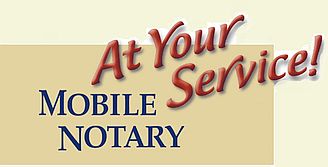
If you’re looking to add another business offering to your mobile Notary work, you can look for assignments at hospitals and rehab centers in your community. Serving patients or staff at these facilities can be profitable and rewarding, but these notarizations can also be among the most challenging to complete.
Clients in healthcare facilities can be very ill, heavily medicated or otherwise impaired, which means the notarization could require extra time, compassion and skill. In this setting, clients are at their most vulnerable. They’re often stuck in a room with equipment connected to them that beeps or buzzes; arm bands or leg stockings that squeeze their limbs; and I.V. bags hanging on poles, etc. They may be lying down and not physically or mentally at their finest.
In this situation, they may need significant documents notarized, such as powers of attorney, which gives another person temporary or long-term power to make their medical or financial decisions. Here are a few tips for notarizing documents for clients in hospitals, hospices and other healthcare facilities:
Schedule Extra Time For Hospital Notarizations
Consider total time versus uninterrupted time. After you find parking, which is usually not near the entrance of the facility, you may walk through a maze of hallways and elevators. There will likely be staff interruptions for taking vitals, making notes and conducting medical procedures, such as X-rays and changing I.V.s. Book a realistic amount of time for the appointment so that you won’t rush the client or be tempted to take shortcuts.
Speak To An Alert Signer
You should always make sure your signer is alert and aware of what’s going on before completing the notarization. Engaging your client in everyday conversation, as well as asking casual questions about the document should help you decide if it is appropriate to proceed. If you are unsure, look to a nurse or social worker to see if there’s anything prohibiting them from signing. Follow the best practice of noting your client’s behavior and awareness in your journal.
If the signer’s family or other visitors are causing any kind of commotion, you might ask them to step out momentarily to ensure the signer is not being directed or pressured.
Signing The Documents May Be Physically Difficult
Your client’s medical condition may make signing the document difficult. Make sure you’re familiar with your state’s guidelines regarding alternatives to a full signature. If witnesses are present and available, you may be able to have the patient sign with a mark, such as an “X” or even a thumbprint. If your signer is unable to sign, your state’s laws may allow the patient to direct another person to sign his or her name on the document, or may allow you as the Notary to sign the patient’s name.
Many Patients Don’t Have ID With Them
Many patients do not have their ID with them at the hospital, making the task of verifying your signer’s identity challenging. Again, you need to know what your state’s guidelines say about what is acceptable ID — especially what is an acceptable alternative to an identity document. For example, does your state make provisions for the use of credible witnesses to identify a patient? If so, what are the requirements? If not, what other alternatives are there? When in doubt, call the NNA Hotline for assistance.
Taking assignments at medical facilities requires a little extra flexibility. Being fully prepared — down to bringing extra tools such as a clipboard and special pens for patients with arthritic or damaged hands — will go a long way toward making these types of appointments as streamlined and flawless as if performed in an office setting.
Laura Biewer owns At Your Service Mobile Notary in Modesto, California. She also teaches seminars for the National Notary Association and is a regular presenter at the NNA’s annual Conferences.
